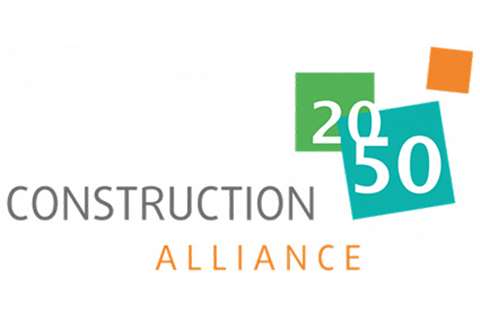Construction is key to recovery, says 2050 Alliance
07 December 2020

A virtual conference, held by the newly-formed Construction 2050 Alliance, saw MEPs and government representatives from a number of European Union (EU) member states discuss post-Covid plans for the built environment – and a new €672.5 billion recovery package.
Riccardo Viaggi, secretary general of CECE (the Committee for European Construction Equipment), gave an introductory presentation, describing the unprecedented nature of the alliance, which is currently supported by 47 European organisations.
He said there was no better time for EU institutions, member states and construction stakeholders to come together in partnership, with the need to tackle the twin imperatives of Covid recovery and climate change.
Maria Teresa Fabregas, director of the European Commission’s (EC) new Recovery and Resilience Task Force, said the body was empowered to allocate €672.5 billion of financial support “to accelerate the recovery and make member states more resilient and better prepared for the future.
“In addition,” she said, “it focuses on reforms and investments that will foster the green and digital transition and reduce economic and social divergence in the Union.”
Regarding construction, she described the EC’s recently published Renovation Wave initiative, saying, “we are advising member states to bring forward projects that will bring together the renovation of public and private buildings, as well as projects linked to infrastructure.”
She added that training for work in reducing climate change and for the digital transformation should be prioritised within the plans for member states.
In summing up, she stressed that the task force will need to see at least 37% of the plans put forward by the member states relating to climate change projects and at least 20% to digital projects.
Officials from France, Germany, Croatia and Greece also made presentations, describing the specific actions being taken by their respective countries, while MEPs gave an overview of the Construction 2050 Alliance concept.
Yannick Pache, of the French Ministry of Ecological Transition & Housing, said his country’s recovery plan include some €4 billion for the renovation and improved energy efficiency of public buildings.
Orestis Kavalakis, of the Greek Ministry of Development & Investments, said his government would focus on releasing private funding by advancing PPP (private-public partnership projects.
He said three such projects were approved in November, with 22 further projects, worth a total of around €22 billion, in the pipeline.
In Croatia, said Irena Kriz Selendic of the country’s Ministry of Economy & Energy, the priority had to be recovery from recent earthquake damage, so renovation plans would have to be more focused on aiding economic recovery than reducing emissions and saving energy.
Domenico Campogrande, director general of FIEC (the European Construction Industry Federation), continued on the theme of EU recovery packages, saying, “There is a need, not only to find agreement, but also to channel this funding on the field, because that is where we will feel the recovery.”
Admitting that the demands on the industry would be great, he said, “Construction is a sector that reacts with some delay, [due to] its administrative procedures that take time to put in place.
“Training will be key,” he concluded, “because construction companies have difficulties in finding the right workers and if we want to, for example, double the renovation rate, the only way to do it is with the workforce.”
The recording of the two-hour Construction 2050 Alliance conference is available here, following registration.
The Construction 2050 Alliance initiative was established following calls from FIEC (the European Construction Industry Federation), EBC (European Builders Confederation), CPE (Construction Products Europe) and CECE (the Committee for European Construction Equipment).




